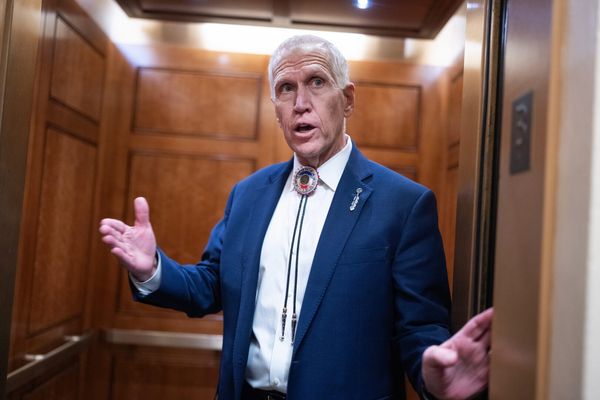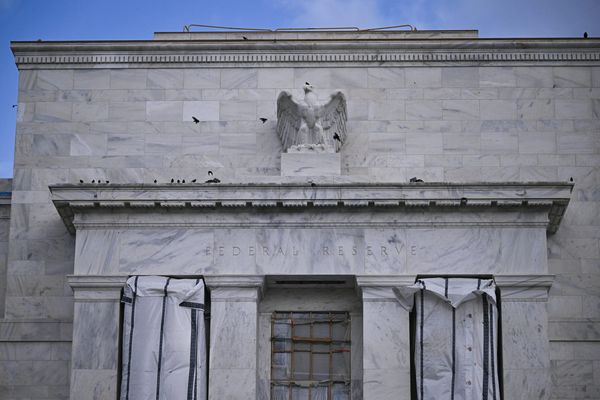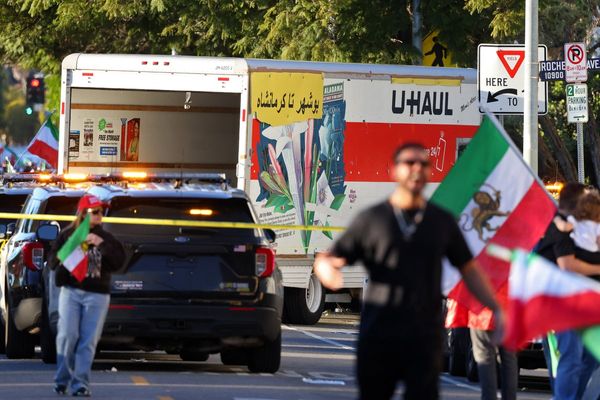
SAS: Rogue Heroes (BBC One) might sound like a documentary on some dusty history channel lurking around the last pages of the TV guide, but Steven Knight’s first time back on the BBC since the end of Peaky Blinders is a big and brash adventure drama about the formation of the SAS in 1941. It is witty, pacy, confident, and, as you might expect, occasionally very violent.
The show leans on a number of contemporary TV drama touchstones, from its use of anachronistic music, blasting out metal and rock over action scenes, to the familiar cheeky disclaimer about its veracity. It is, we are promised, “based on a true story” (as told in Ben MacIntyre’s book of the same name), but it is only “mostly true”. In interviews, Knight has said that he had to tone some elements of it down, so that it wouldn’t stretch viewers’ belief.
Such myth-stoking only adds to the fascination, because the story that it does tell is frequently outrageous and often absurd. We begin with a convoy of trucks attempting to make its way from Cairo to the strategic port city of Tobruk, which doesn’t quite go to plan, before it drops into a quick catch-up about the state of the second world war at this point. It does not mince its words. Unless there is a drastic shift in tactics, it is looking like the allies are “fucked”. The swearing, the stencil-stamped title cards, the electric guitars: this is not your everyday war drama.
Enter television’s current favourite actors, ready to form a lads’ army of their own. It centres on the trio of Sex Education’s Connor Swindells, The North Water’s Jack O’Connell and Game of Thrones’ Alfie Allen, playing renegade soldiers who each combine a death wish with total disdain for any sense of hierarchy or authority. I’m no military expert, but I always assumed discipline was quite a big deal in these circles. Not so, it turns out. You can smash your senior officer’s head against a piano when he interrupts your chess game, and there’s every chance you’ll manage to wriggle, or more accurately, scrap yourself out of it.
Swindells is Lt Archibald David Stirling, who has daddy issues and a drink problem, and who likes to goad Australians in bars after winning on the horses. O’Connell is Lt Robert Blair “Paddy” Mayne, who writes poetry and is, in the words of one of the sets of military police who try to imprison him, “a mental case”. Allen is Lt John Steele “Jock” Lewes, who barely flinches when bombs are dropped within feet of him. These young men are reckless because they can be. War has given them the liberty to behave like “the beasts that we are”, says Stirling, in a rousing if sozzled speech. You can see why Knight, who loves a self-made outsider as much as he loves a bloody dust-up, might be so drawn to the story.
As the fascists are advancing in north Africa, Jock comes up with an idea for “a little experiment”. What if they created a parachute regiment, “answerable to no one”, to attack Nazi supply lines from the desert, rather than from the sea, where the allied forces can be seen coming? The only problem is a lack of parachutes and parachute training. Oh, and a lack of permission. And a lack of volunteers who are “mad as fuck”, as Stirling claims he is. Actually, there are quite a lot of problems. Is that going to stop them? Does Arthur Shelby like a drink?
Welcome to Khaki Blinders. As the three men career around Cairo, or Tobruk, getting themselves into scrapes and sticking two fingers up to anyone who attempts to rein them in, they work their way towards a common cause, while back-talking their superiors, fighting their way out of prison and thieving their supplies. Sofia Boutella plays Eve, a French intelligence officer in a red dress, with red lipstick, who does sexy smoking and knocks back champagne while plotting to send men to their likely deaths. Dominic West turns up in episode two, which ever so slightly shifts the mood, from frantic action to intrigue. For all of the bells and whistles, the bombs and the battles, it was this aspect that had me most gripped. How the SAS came to get the permission it needed to exist is astonishing and very well told.
I thoroughly enjoyed SAS: Rogue Heroes. It is funnier than Peaky Blinders, which dragged itself into the doldrums for its final series, though this still has plenty of its predecessor’s vim. It is a bracing way to spend a Sunday evening, and, to borrow the parlance of one of its leads, a lot of fun, old boy. Indeed.







